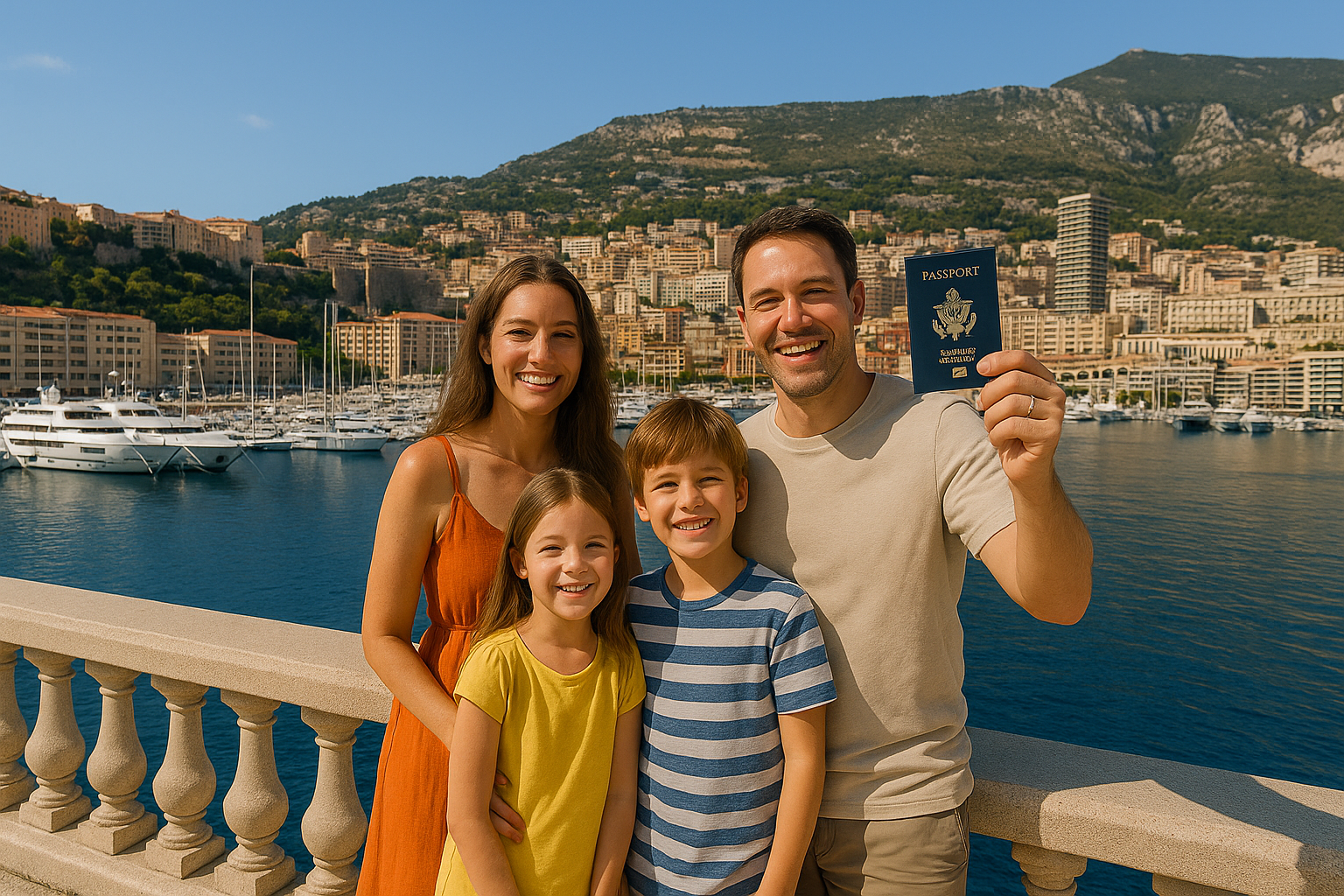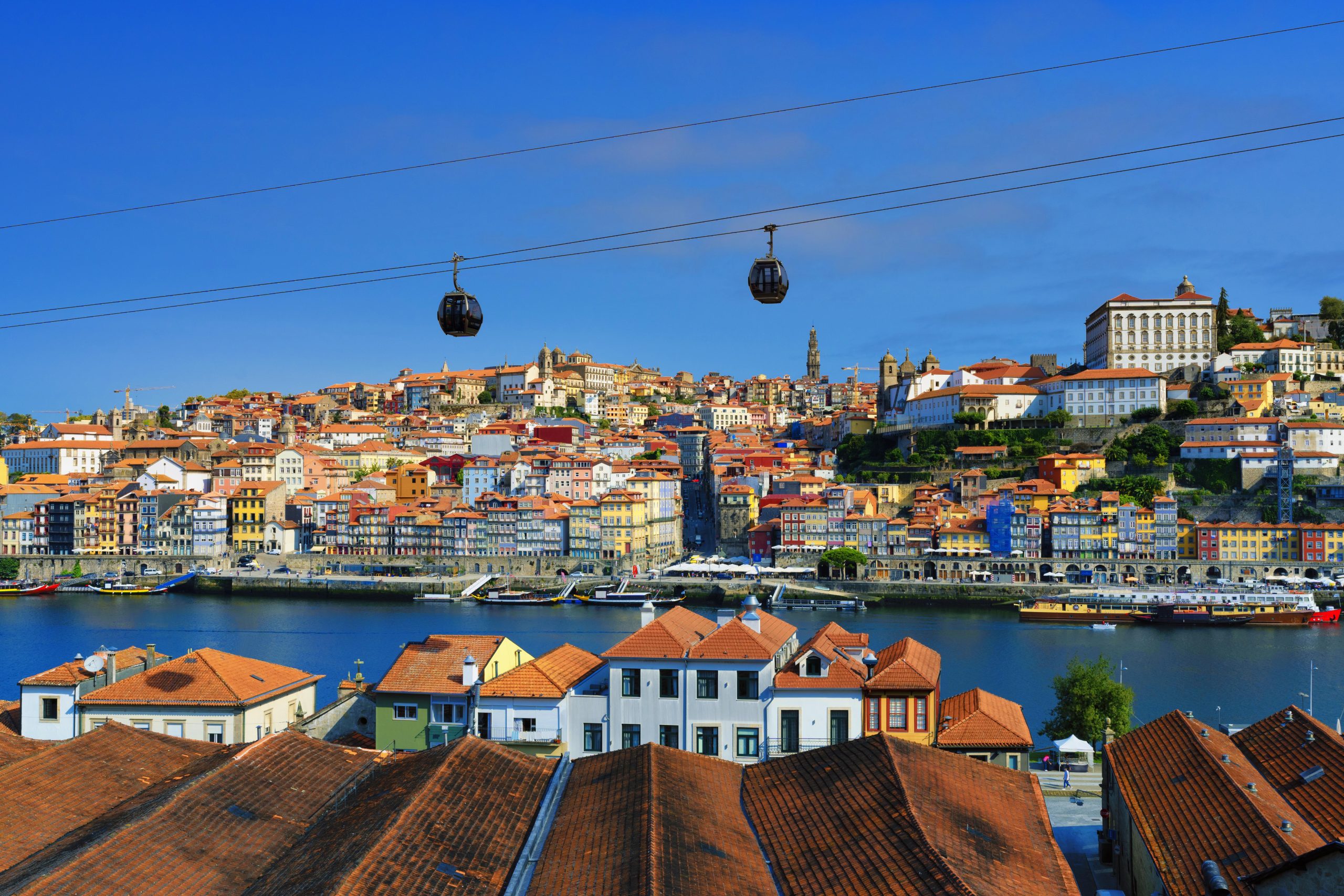Least Populated Countries for Second Citizenship

- Understanding Population Density in Citizenship by Investment Countries
- Top 5 Least Populated Countries Offering Citizenship Programs
- Benefits of Obtaining Citizenship in Low-Population Countries
- Investment Requirements for Low-Population Citizenship Programs
- How to Choose the Right Low-Population Country for Your Second Citizenship
- FAQs About Citizenship in Least Populated Countries
- Need Help?
What if the value of your second passport wasn’t just about where it takes you, but also how many people share it?
When it comes to choosing the best second citizenship, most people zero in on tax perks, visa-free access, and lifestyle. But here’s something smart investors are starting to factor in: population density.
In other words, how exclusive is the passport you’re holding? Because in the world of exclusive citizenship programs, fewer citizens often means greater access, better resources, and a whole different level of privacy.
Let’s break it down.
Understanding Population Density in Citizenship by Investment Countries
When most people think about Citizenship by Investment (CBI) programs, they picture palm trees, fast-track processing, and visa-free travel. What often gets overlooked? How many people actually live in these countries. It may not sound like a big deal at first, but it can drastically affect your experience once you’ve secured that shiny new passport.
Why population size matters
In countries with low population density, you’re not just another name on a government database. You’re part of an intentionally small, tightly managed group. These aren’t countries handing out citizenships by the tens of thousands. Their appeal lies in their exclusivity, and they want to keep it that way.
Smaller populations typically mean:
- Less bureaucratic red tape
- More responsive service from government bodies
- A stronger sense of community for expats and investors
- Easier access to public services, healthcare, and infrastructure
And for investors looking to diversify globally, these nations often come with stronger protections around privacy and asset security. That means less noise, fewer data leaks, and far more control over your international footprint.
Quality of life gets a serious upgrade
Let’s say you’re choosing between a large, bustling country and a micro-state passport from a low-density nation. The difference in lifestyle can be huge.
In smaller countries offering CBI programs, like Antigua and Barbuda, Malta, or Vanuatu , there’s less congestion, fewer administrative delays, and often a much closer connection to the country’s leadership and business circles. It’s the kind of environment where relationships are easier to build, and where your contribution, whether financial or entrepreneurial, doesn’t get lost in the crowd.
These low population density countries are often celebrated for their:
- Higher environmental quality
- Lower crime rates
- Streamlined immigration procedures
- Personal access to services you’d never dream of in more populated places
And let’s be real: in a world that’s increasingly noisy and overexposed, sometimes the real luxury isn’t just what a passport unlocks. It’s how many people are holding the same key.
Exclusivity drives long-term value
Just like in luxury real estate or rare art, scarcity matters. A limited population passport program means your citizenship carries more weight, and often, better long-term value. These countries tend to carefully vet applicants, maintain strong diplomatic relationships, and prioritize national reputation over mass volume. That’s good news for you.
Whether you’re looking for a peaceful island escape or a politically neutral European base, don’t just ask “Where can I get citizenship fast?” Instead, ask:
“Where will my citizenship actually matter?”
Next, we’ll take a closer look at the countries that check all the boxes, low population, high privacy, and serious investment value.
Let’s get into the top five.
Top 5 Least Populated Countries Offering Citizenship Programs
When it comes to second passports, exclusivity matters. And these nations don’t just offer CBI options: they offer low-density living, high-value access, and passports that aren’t handed out like flyers at an airport lounge. Here’s where to look if you want fewer people, more privacy, and serious strategic perks.
Monaco: The Ultra-Exclusive Mediterranean Citizenship Option
Let’s start at the top. Monaco isn’t just a country, it’s a billionaire’s postcode. With a population of around 39,000 residents packed into just two square kilometers, Monaco is tiny, ultra-wealthy, and tightly controlled. This is not a typical Citizenship by Investment program, in fact, Monaco doesn’t offer traditional CBI. But it does allow residency by investment, and long-term residents may eventually be granted citizenship under very specific conditions.
Monaco’s appeal? Prestige, privacy, and a zero income tax policy. It’s the ultimate example of a micro-state passport where scarcity drives value. You won’t find billboards advertising citizenship here: everything runs through private bankers, law firms, and high-level referrals.
If you’re looking for something that screams “exclusive,” Monaco is the gold standard. Think yachts, Formula 1, and banking discretion that rivals Switzerland. Small nation citizenship doesn’t get more luxurious than this.
Vanuatu Citizenship Program: Pacific Paradise with Low Population
Next up, Vanuatu: a stunning archipelago in the South Pacific with a population under 330,000. That’s fewer people than a mid-sized European city, scattered across 80+ islands. Talk about space to breathe.
Vanuatu offers one of the fastest Citizenship by Investment timelines in the world, often just 30 to 60 days. For a government contribution starting at $130,000, you get a low-density country residency that opens visa-free access to 100+ countries and territories, including the UK and Singapore.
This is island living, uninterrupted. No traffic. No stress. Just tropical beauty and a passport that’s useful, especially as a backup plan for geopolitical uncertainty. Plus, there are no residency requirements, which means you don’t have to move your whole life just to get the passport.
Vanuatu’s limited population passport program is proof that you don’t need a sprawling economy to build a powerful citizenship offering.
Malta: Mediterranean Micro-State Citizenship
Malta may be small, under 520,000 people, but it punches way above its weight when it comes to second citizenship. As a full member of the EU, Malta offers a Citizenship by Naturalization for Exceptional Services by Direct Investment: a mouthful, but one of the most respected exclusive passport programs out there.
Minimum investment? You’re looking at around €600,000 plus real estate and donation requirements. But the upside? Full European citizenship, visa-free travel to the US and UK, and access to one of the world’s best healthcare systems.
As a low population density country, Malta offers more than just paperwork. It’s got a rich history, strong rule of law, and one of the most efficient digital infrastructures in Europe. Not to mention English is an official language, making integration seamless.
In the realm of small nation citizenship, Malta is the unicorn. High standards, low volume, and long-term value baked in.
Saint Kitts and Nevis: Caribbean Nation with Limited Population
If you’re aiming for sun, privacy, and global mobility, Saint Kitts and Nevis checks all the boxes. With a population of about 53,000, it’s one of the smallest sovereign states in the Western Hemisphere, and one of the pioneers in the Citizenship by Investment space.
Launched in 1984, their CBI program is the oldest in the world. And while the rules are tightening globally, Saint Kitts continues to maintain its reputation as a reliable, stable option. You can secure a passport by making a government donation starting at $250,000 or investing in approved real estate projects.
The country’s low population ensures a relaxed pace of life, while the passport gives you access to over 140 destinations. It’s a favorite among those looking for island nation citizenship without sacrificing passport strength.
If you’re after exclusivity without the Europe-sized price tag, this Caribbean gem offers a compelling package.
Antigua and Barbuda: Exclusive Island Citizenship
Last but definitely not least, Antigua and Barbuda. This dual-island nation in the Eastern Caribbean has a population of just under 100,000 and a CBI program that’s gained serious traction in recent years.
With options starting at $100,000 for a government donation or $200,000 for real estate, it’s one of the more affordable exclusive citizenship programs, but don’t confuse price with value. Antigua’s passport gives you visa-free or visa-on-arrival access to 150+ countries.
Life here is exactly what you’d imagine: sun-soaked beaches, clear waters, and a culture that’s both warm and laid-back. But what makes it stand out is the balance between lifestyle and strategy. You get privacy, low tax exposure, and access to a business-friendly jurisdiction: all within a country that doesn’t feel overcrowded or overexposed.
For anyone looking to invest in a second citizenship that delivers lifestyle and leverage, Antigua and Barbuda belong at the top of the list.
Benefits of Obtaining Citizenship in Low-Population Countries
Choosing a country with fewer people isn’t just about avoiding crowds. It’s about tapping into a unique lifestyle, access, and strategy that larger nations simply can’t offer. Here’s why small nation citizenship could be one of the smartest moves you make this decade.
Privacy and Exclusivity
One of the most underrated perks of obtaining citizenship in a low-population country? Privacy.
You’re not just a number in a massive population registry. You become part of a small, tightly governed community where discretion is the norm, not the exception. If you’re someone who values confidentiality, whether for personal, professional, or financial reasons, these countries often offer an added layer of protection that’s hard to replicate elsewhere.
And then there’s exclusivity. Countries like Monaco, Malta, or Vanuatu aren’t exactly handing out citizenships to the masses. These programs are intentionally designed for a limited audience. They want strategic investors, global entrepreneurs, and high-value individuals, not everyone with a checkbook. This exclusivity instantly elevates the status of your micro-state passport.
It’s not just about “having” a second citizenship. It’s about having one that very few others do.
Access to Resources
You might think a smaller population means fewer services. But in many low population density countries, the opposite is true. With lower pressure on infrastructure and public services, you’ll often find that what’s available is both accessible and high-quality.
Need healthcare? Places like Malta and Monaco have world-class medical systems, and because there are fewer people using them, you’re more likely to get the attention you need, when you need it.
Banking? Countries like Saint Kitts and Nevis or Antigua offer solid private banking options and access to exclusive citizenship programs that include well-regulated financial services with global reach.
Education, utilities, government services: everything just tends to run a little smoother when there are fewer people demanding attention from the same system.
Quality of Life
Let’s get real: life in a packed city isn’t for everyone. If you’ve ever sat in traffic for two hours or waited weeks for a public appointment, you already know why small nation citizenship can be a game-changer.
Less congestion means less stress. You breathe cleaner air, hear fewer sirens, and spend more time living rather than navigating chaos. Island nations in particular, think Vanuatu, Saint Kitts, or Antigua, often have breathtaking natural surroundings that promote a slower, healthier lifestyle.
Even more structured nations like Malta or Luxembourg manage to balance old-world charm with efficient modern living. That’s the sweet spot for a lot of high-net-worth individuals looking for a second home that doesn’t feel like a second-rate experience.
And don’t underestimate the psychological impact. Living in a community where your presence matters, where the government actually knows its citizens, and where there’s space to be heard: that changes how you engage with your environment.
Investment Opportunities
Here’s where it gets interesting. Many low population density countries offer exclusive citizenship programs tied to real estate, business development, or national development funds. These aren’t just one-way donations: in some cases, they’re doorways to serious investment opportunities.
Take Antigua or Saint Kitts. The real estate options connected to their citizenship programs include resort developments, luxury villas, and commercial projects that attract steady tourism and solid rental income. In Malta, approved investments often double as high-performing property portfolios in an EU country.
And because these countries tend to rely on a more boutique investor base, there’s less competition and more personalized support. You’re not fighting for deals: you’re being invited into them.
So, is citizenship in a low-density country for everyone? Probably not. But if you’re the kind of person who thinks long-term, values access over crowds, and knows that exclusivity never goes out of style: then yes, this is where you want to be.
When you choose a micro-state passport, you’re not just adding a flag to your collection. You’re buying into a whole different way of life: one that’s private, secure, and surprisingly powerful.
Investment Requirements for Low-Population Citizenship Programs
When it comes to limited population passport programs, it’s not just about picking a pretty island. You need to know what kind of financial commitment is on the table.
Real estate options are a favorite route, especially in island nation citizenship programs. Think beachfront villas in Antigua or luxury resort shares in Saint Kitts. These are investments that often generate rental income while securing your second passport.
Then there are government contributions: straightforward donations to a national fund. This is usually the fastest and simplest path, but unlike real estate, there’s no return on the capital. What you’re buying here is speed, simplicity, and access.
And for those wanting something more hands-on, some nations offer business investment alternatives. Start a company, invest in a local venture, or bring economic value to a developing sector. This path can double as a relocation or expansion strategy: ideal if you’re looking at low-density country residency with serious business intent.
Bottom line? There’s no one-size-fits-all. But with the right strategy, these options open doors to not just a passport, but real financial value.
How to Choose the Right Low-Population Country for Your Second Citizenship
So, how do you narrow it down? Start with your lifestyle considerations. Do you want beach mornings and barefoot living? Vanuatu or Antigua might be for you. Prefer an EU-based microstate with history, structure, and a global passport? Malta could be a better fit.
Next up: investment thresholds. Some programs start around $100,000 in donations, while others ask for a $300,000+ real estate buy-in. Your risk appetite and liquidity matter here.
Don’t forget processing times. If you’re in a hurry, look for programs with quick approvals , Saint Kitts & Nevis, for example, offers one of the fastest exclusive passport programs in the world.
Finally, weigh your visa-free travel benefits. The true value of your second passport depends on where it takes you. Malta gives you EU access. Vanuatu gets you into Schengen. These benefits vary, so choose based on your goals.
When done right, choosing the right country is about more than ticking boxes. It’s about creating freedom on your own terms, in a place that matches your mindset and momentum.
FAQs About Citizenship in Least Populated Countries
1. Why consider citizenship in a low-population country?
Opting for citizenship in a low-population country offers benefits like enhanced privacy, less bureaucratic red tape, and a more exclusive status. These nations often provide streamlined services and a higher quality of life, making them attractive for those seeking a unique and efficient citizenship experience.
2. Are these citizenship programs legitimate and recognized internationally?
Yes, many low-population countries have established legitimate Citizenship by Investment (CBI) programs. For instance, Saint Kitts and Nevis offers one of the oldest and most reputable CBI programs, providing visa-free access to numerous countries. However, it’s essential to research each program’s current status, as some, like Vanuatu, have faced scrutiny and changes in visa agreements.
3. What are the typical investment requirements for these programs?
Investment requirements vary by country. For example, Malta requires a significant investment, including a government contribution and real estate purchase. In contrast, Vanuatu offers a more affordable option with a donation to the government fund. It’s crucial to consider the total cost, including due diligence and processing fees, when evaluating these programs.
4. How long does the citizenship process usually take?
Processing times differ among programs. Vanuatu boasts one of the fastest processes, often granting citizenship within a couple of months. Other countries, like Malta, may take a year or more due to thorough due diligence procedures. It’s advisable to consult with official sources or authorized agents for the most accurate timelines.
5. Can I include my family in the citizenship application?
Most CBI programs allow the inclusion of family members, such as spouses and dependent children, in the application. Some programs also permit the addition of extended family members, like parents or siblings, under certain conditions. Each program has specific criteria and associated costs for family members, so it’s essential to review the details carefully.
Need Help?
Your goals deserve a strategy that matches your ambition. At Millionaire Migrant, we’ve spent decades helping individuals and families achieve freedom through tailored investment plans, strategic tax optimization, and second citizenship solutions. Our mission is simple: we help you create a life where you can live, work, and invest with no borders and minimal tax burdens. Ready to redefine your future?
Contact us today and discover how Millionaire Migrant can help you make it happen.


